Kevin Powers Quotes & Sayings
18 most famous Kevin Powers quotes and sayings (writer). These are the first 10 quotes we have.
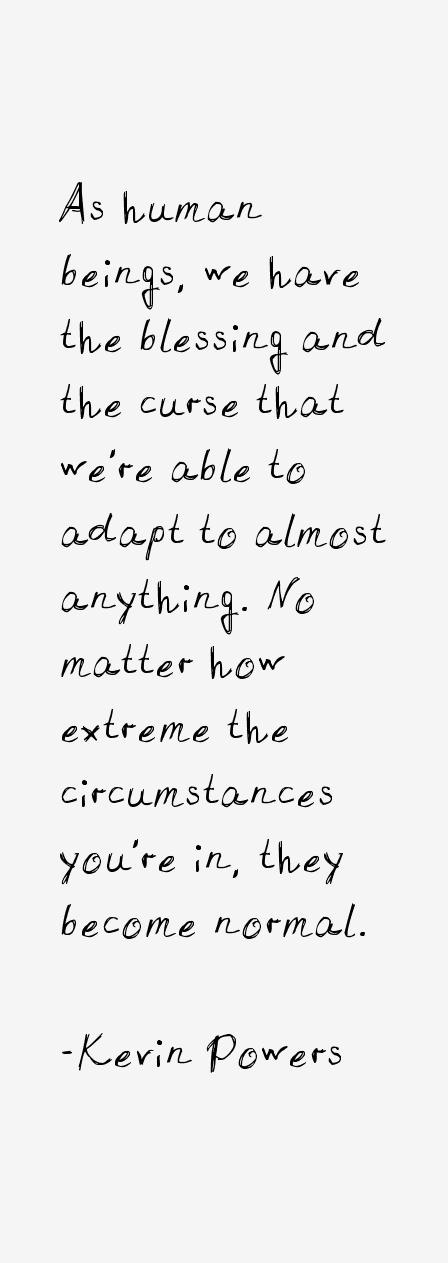
“As human beings, we have the blessing and the curse that we're able to adapt to almost anything. No matter how extreme the circumstances you're in, they become normal.”
“The male role models I had all seemed to have been in the military. My father served in the army. My uncle was in the Marine Corps. Both of my grandfathers served in WWII. There weren't any career soldiers in my family, but when I was young it seemed like a way of arriving at adulthood.”
“Noises and smells, those can bring back powerful memories. I remember when I was going to school one Fourth of July, and there were a lot of fireworks going off. I knew that I was in Richmond. I knew that I was a college student. But I thought people were shooting at me.”
“I think a lot of the guys I know and a lot of people I've talked to, what they want is very often what most people want, a kind of simple life, a livelihood, a family, people who care about them, people they can care about. I think vets on the whole want the same things that everybody else does.”
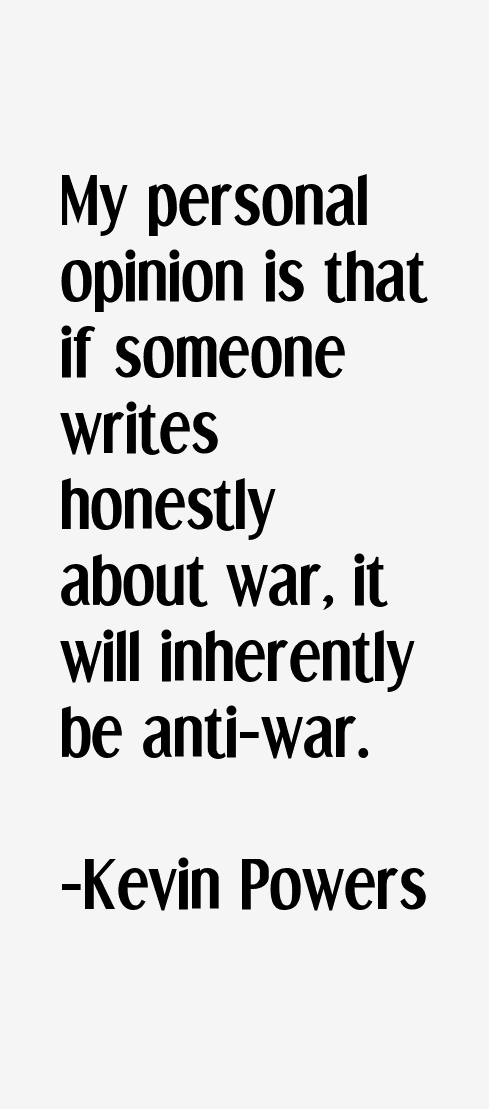
“My personal opinion is that if someone writes honestly about war, it will inherently be anti-war.”
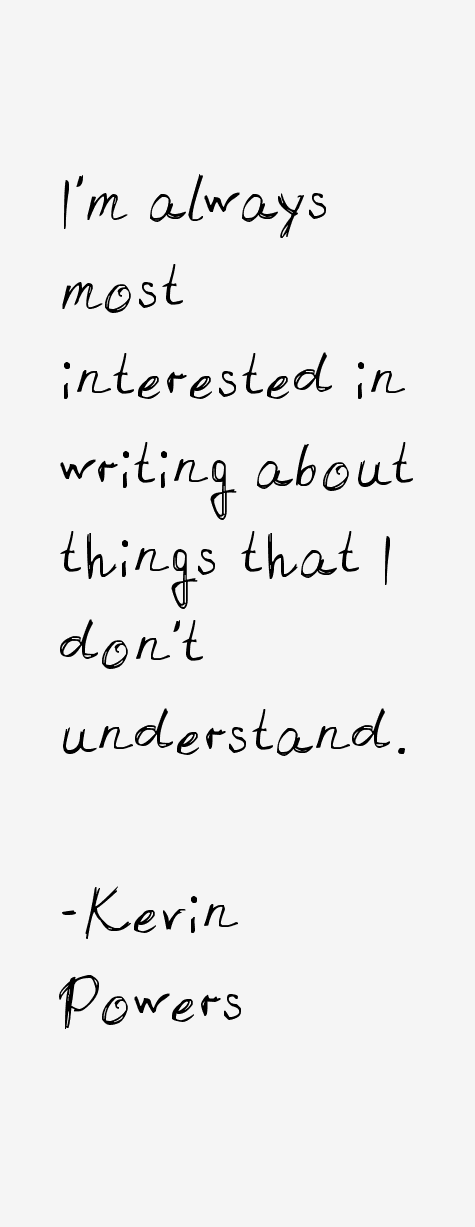
“I'm always most interested in writing about things that I don't understand.”
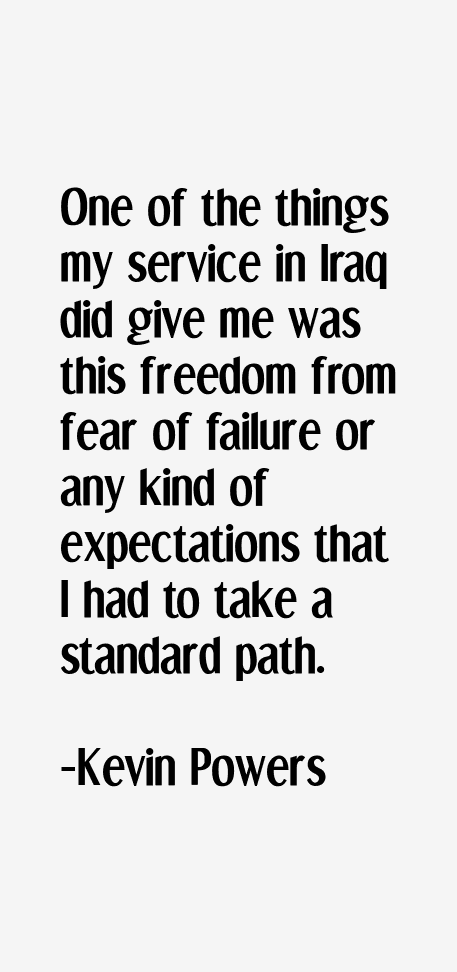
“One of the things my service in Iraq did give me was this freedom from fear of failure or any kind of expectations that I had to take a standard path.”
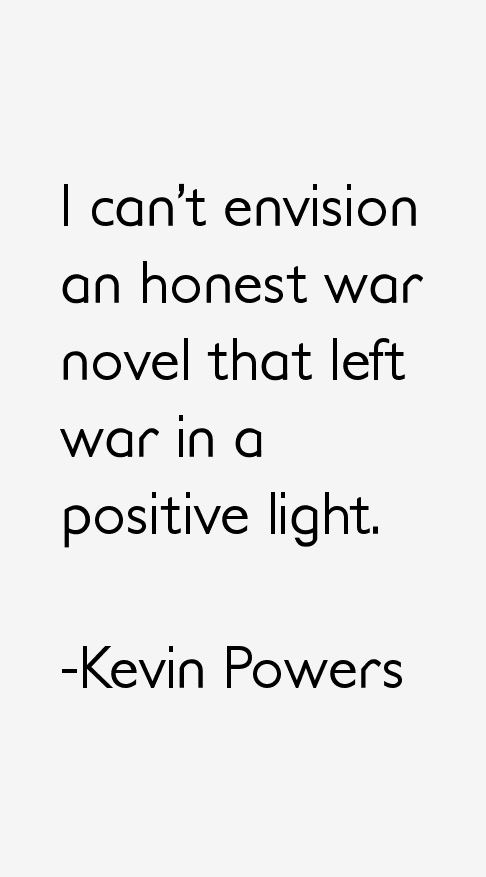
“I can't envision an honest war novel that left war in a positive light.”

“It's not just: you get off the plane, you're back home, everything's fine. Maybe the physical danger ends, but soldiers are still deeply at risk of being injured in a different way.”
“I wasn't a good student in high school. I wanted to go to college, but they weren't exactly beating down my door to offer me admission, and it's so expensive in the U.S. If you join up for a period, the army will pay your school and provide a stipend.”
Kevin Powers Quotes Rating
No Ratings Yet
Leave A Comment
























